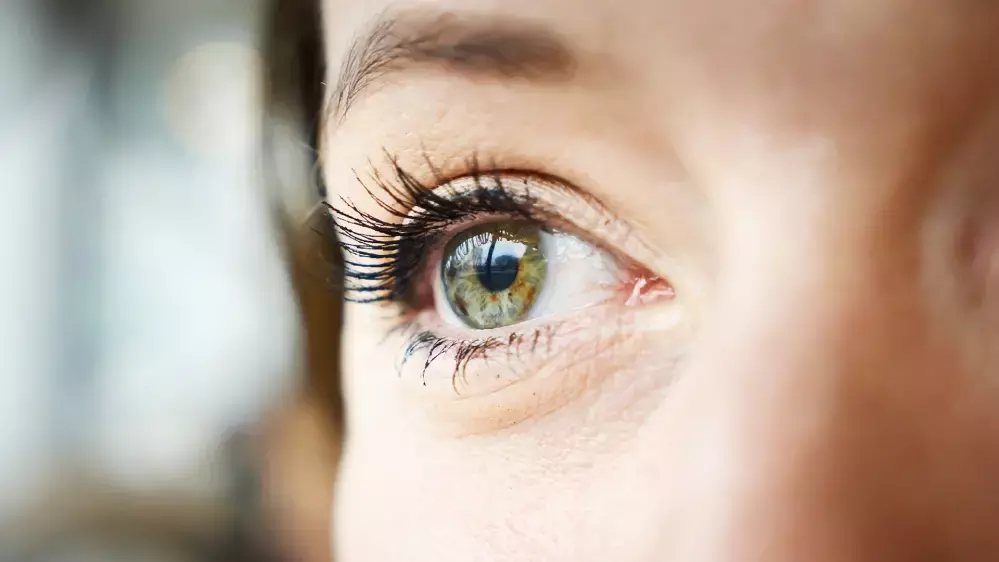- Home
- Medical news & Guidelines
- Anesthesiology
- Cardiology and CTVS
- Critical Care
- Dentistry
- Dermatology
- Diabetes and Endocrinology
- ENT
- Gastroenterology
- Medicine
- Nephrology
- Neurology
- Obstretics-Gynaecology
- Oncology
- Ophthalmology
- Orthopaedics
- Pediatrics-Neonatology
- Psychiatry
- Pulmonology
- Radiology
- Surgery
- Urology
- Laboratory Medicine
- Diet
- Nursing
- Paramedical
- Physiotherapy
- Health news
- Fact Check
- Bone Health Fact Check
- Brain Health Fact Check
- Cancer Related Fact Check
- Child Care Fact Check
- Dental and oral health fact check
- Diabetes and metabolic health fact check
- Diet and Nutrition Fact Check
- Eye and ENT Care Fact Check
- Fitness fact check
- Gut health fact check
- Heart health fact check
- Kidney health fact check
- Medical education fact check
- Men's health fact check
- Respiratory fact check
- Skin and hair care fact check
- Vaccine and Immunization fact check
- Women's health fact check
- AYUSH
- State News
- Andaman and Nicobar Islands
- Andhra Pradesh
- Arunachal Pradesh
- Assam
- Bihar
- Chandigarh
- Chattisgarh
- Dadra and Nagar Haveli
- Daman and Diu
- Delhi
- Goa
- Gujarat
- Haryana
- Himachal Pradesh
- Jammu & Kashmir
- Jharkhand
- Karnataka
- Kerala
- Ladakh
- Lakshadweep
- Madhya Pradesh
- Maharashtra
- Manipur
- Meghalaya
- Mizoram
- Nagaland
- Odisha
- Puducherry
- Punjab
- Rajasthan
- Sikkim
- Tamil Nadu
- Telangana
- Tripura
- Uttar Pradesh
- Uttrakhand
- West Bengal
- Medical Education
- Industry
Chromium supplementation has no effect in patients with diabetic retinopathy and macular edema: Study

India: In a new study conducted by Ahmad Mirshahi and team, it was found that chromium supplementation had no effect on visual acuity or central foveal thickness in individuals with non-proliferative diabetic retinopathy and macular edema, although it did lower the number of Intravitreal Bevacizumab (IVB) injections and HbA1C. The findings of this study were published online on July 11, 2021, in the HSOA Journal of Ophthalmology and Clinical Research.
Diabetic macular edema (DME) is a typical symptom of this vasculopathy that can result in central vision loss and has a significant impact on the patient's quality of life. DME has been shown to affect 3.8 percent to 23.8 percent of diabetes people in various studies.
The purpose of this study was to evaluate the impact of chromium-containing dietary supplements on patients with DME who had received IVB injections in order to determine the kinetics of central macular thickness decrease, BCVA improvement, and the number of injections.
A 120-patient interventional comparative case series investigation was carried out. Patients were given chromium supplements with or without chromium for four months and then observed for six months. The researchers evaluated best-corrected visual acuity (BCVA), central foveal thickness (CFT), HbA1c, and the frequency of intravitreal Bevacizumab (IVB) administration. From a total of 120 eligible patients, 90 participated in this trial and completed the six-month follow-up period. There were 51 in the chromium group and 39 in the control group.
In this study, the drop in HbA1C in the chromium group was substantially greater than in the control group. Visual acuity increased considerably from baseline in both groups at all follow-up points, but there was no statistical difference between groups. In four follow-up visits, the linear mixed model analysis revealed that the mean CFT decrease was not substantially different between the two groups. In the chromium group, HbA1C and the average number of IVB injections were considerably reduced.
In conclusion, according to the study's authors, individuals with non-proliferative diabetic retinopathy and clinically significant diabetic macular edema who supplement their diets with vitamins and chromium require fewer IVB injections.
Reference:
Mirshahi A, Ghahvehchian H, Riazi-Esfahani H, Ghods S, Bazvand F, et al. (2021) The Effect of Chromium in the Management of Diabetic Macular Edema: An Interventional Comparative Case Series. J Ophthalmic Clin Res 8: 083.
Medical Dialogues consists of a team of passionate medical/scientific writers, led by doctors and healthcare researchers. Our team efforts to bring you updated and timely news about the important happenings of the medical and healthcare sector. Our editorial team can be reached at editorial@medicaldialogues.in.
Dr Kamal Kant Kohli-MBBS, DTCD- a chest specialist with more than 30 years of practice and a flair for writing clinical articles, Dr Kamal Kant Kohli joined Medical Dialogues as a Chief Editor of Medical News. Besides writing articles, as an editor, he proofreads and verifies all the medical content published on Medical Dialogues including those coming from journals, studies,medical conferences,guidelines etc. Email: drkohli@medicaldialogues.in. Contact no. 011-43720751


